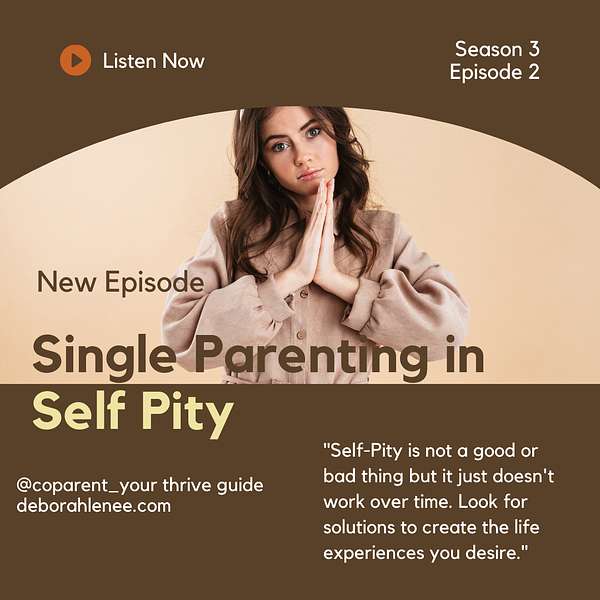
Co-Parenting; Your Thrive Guide
Co-Parenting; Your Thrive Guide
Single Parenting in Self Pity
1. Show Compassion to yourself first
Allow yourself to really feel what you are feeling. Be compassionate with yourself just as you would with a friend or your child. Ask for support if you need it.
2. Awareness of the pain of self-pity
Feeling sorry for yourself not only creates pain for you but it creates pain for others too. Not many people want to be around you if you are always down. Instead of seeing that as something else to feel hurt about, become aware of the pain you are creating for yourself.
No one can make you feel anything, only you control the way you feel.
3. NO VICTIM – refuse to be a victim
Victim mentality is typically the cause of self pitying behavior. It’s called the drama cycle and with this cycle we choose to blame someone or something else for the way we feel.
Decide that your relationships are too important and make a stand and refuse to be a victim.
4. Questions that keep you stuck
The question we as victims most often ask themselves is “Why?”
“Why is this happening to me?”
“Why did she do that?”
“Why did he say that to me?”
These are low quality questions and with these questions you will receive low quality answers. For example;
“Because you’re not good enough..”
“Because he doesn’t like you”
“Because she doesn’t truly value your friendship.”
Any question beginning with “Why” will keep you stuck in your current situation feeling like a victim. Decide to NEVER use the word “Why” from your vocabulary and replace it with words like “What”, “How” and “When”.
For example;
“What can I do to get a different outcome?”
“When will I contact her and explain how I feel?”
“How can I change the situation?”
As you change the quality of your questions, you will see empowered you will feel.
5. Perception and your responsibility
If we have consistently see things in a negative way, it’s likely we will continue to do so unless we bring awareness to the table.
Our perception creates our reality and by changing our viewpoint, we are able to change any experience. Take responsibility for the way you are viewing a situation and challenge yourself to see it in a different way.
6. Be courageous
It takes courage to hold up the mirror and look at our part in things, but this is the only way to make real change. This is because we only ever have complete control and influence over ourselves.
Holding up the mirror doesn’t mean beating yourself up for your mistakes. This is just another form of self pity. As you make these changes, you will notice your self-pity decrease and self-empowerment increase.
7. Acknowledging the positive things in your life.
The fastest way to turn this around is to make it a practice to regularly focus on the good. You may have heard this before and that’s because it’s true. Keep a gratitude journal.
8. Noticing others that have it worse.
With all the events and the pandemic happening in our world right now, it’s easy to find examples of others less fortunate. This is comparison used in a positive way.
Instead of feeling wrapped up in your own world, look for ways you can help others.
Contributing to others is one of the fastest ways to start feeling good and taking your attention away from yourself. This is good for you and good for others. And you will notice your self-confidence and empowerment soar.